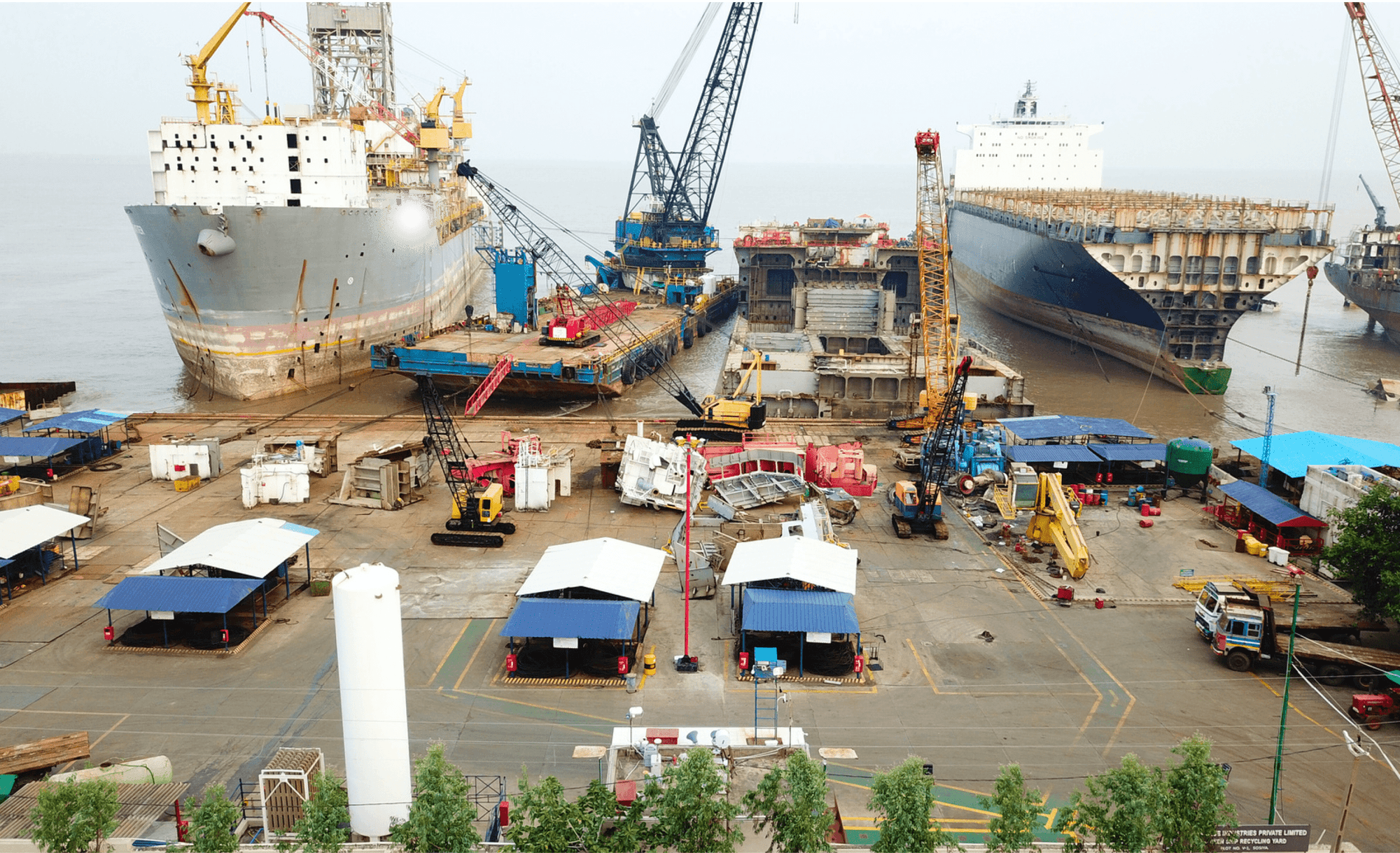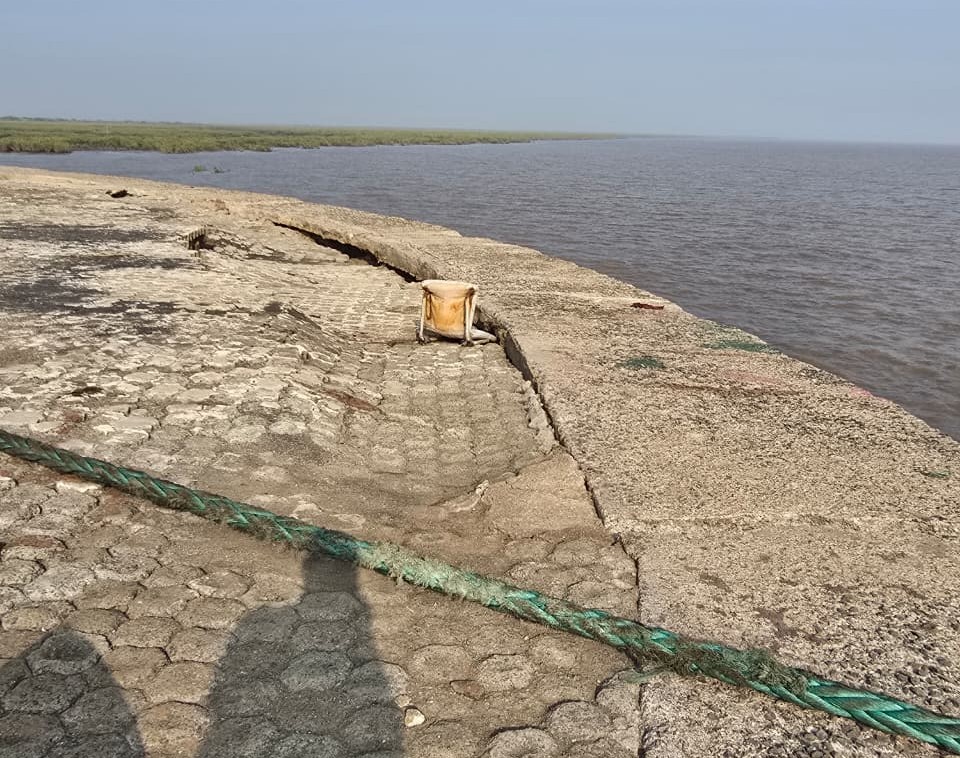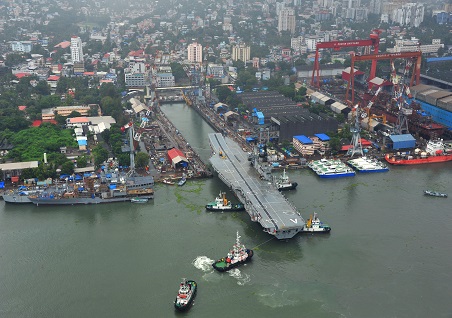Indian Subcontinent Ship Recycling Markets Enter a Period of Calm
According to GMS’ latest report, the ship recycling markets in the Indian subcontinent have entered a period of calm following an exceptionally busy start to the year. After an intense January marked by numerous negotiations and a late February to early March characterized by continuous deliveries, the market has quieted down. Nearly 200,000 light displacement tons (LDT) were delivered in recent weeks, signalling a temporary lull after the frenzied activity earlier in the year.

In the last few weeks, very few deals have been fixed, with sales remaining scarce. Prices have either held steady or declined below the previously pursued levels of USD 450 per LDT. Last week’s logger sale into Bangladesh confirmed the decline, indicating a market slowdown. The demand for vessels has cooled, leaving recyclers with limited opportunities for new acquisitions.
Bangladesh Leads, While India and Pakistan Lag
Despite the market-wide slowdown, Bangladesh remains ahead of its regional counterparts. The country’s ship recycling industry has maintained a competitive edge over India and Pakistan, both of which are grappling with weakening market conditions. However, Pakistan is gradually becoming more competitive, narrowing the gap with Bangladesh. This has resulted in a significantly quieter Alang anchorage in India, with only Pakistan managing to secure its second vessel delivery in three months.
The downturn in activity is not isolated to the ship recycling market. The Baltic Dry Bulk Sea Freight Index has recorded further gains, reaching its highest level since November 2024. This surge in freight rates has diverted dry bulk and container vessels away from shipbreaking yards, keeping older vessels in service for longer. This trend is expected to exacerbate global inflation as logistics costs rise. Additionally, ongoing trade disputes are adding to market uncertainty, making the ship recycling landscape even more volatile.
Meanwhile, oil prices have also experienced fluctuations, reflecting broader economic trends. After dropping by 1% earlier in the week, oil prices rebounded by 0.9% on Friday, closing at $67.20 per ton. The global energy market remains unsettled, with OPEC+ countries continuing to oversupply despite easing global energy demands.
Domestic Challenges and Market Reactions
On the domestic front, the Indian and Pakistani ship recycling markets have been affected by mixed economic signals. The U.S. Dollar has shown instability, weakening against some currencies while strengthening against others. Additionally, declining local steel plate prices have dampened market sentiment further in both India and Pakistan. In contrast, Chinese steel plate prices have firmed for the first time in a while, which could positively impact subcontinent markets over time. However, whether this trend stabilizes the region’s ship recycling industry remains uncertain.
The current period of market inactivity presents an opportunity for recyclers in Bangladesh and Pakistan to upgrade their shipbreaking yards to meet Hong Kong Convention (HKC) standards. The convention, which comes into force on June 26th, aims to ensure environmentally sound and safe ship recycling practices. While most yards in Alang, India, are already HKC-certified with Statements of Compliance (SoC), recyclers in other subcontinent countries are still working towards meeting these standards.
Turkey, another major ship recycling destination, has also retreated into a period of inactivity due to a lack of available tonnage. The country saw only a marginal private proposal this week, indicating a broader trend of reduced vessel scrapping worldwide.
Impact of Global Trade Policies and Sanctions
Beyond economic and market trends, geopolitical developments are also shaping the ship recycling industry. Many of former U.S. President Donald Trump’s tariff deadlines have now passed, and it remains to be seen how economies will respond. China has begun retaliating, adding another layer of complexity to global trade dynamics.
In addition, a number of large LDT vessels listed under the Office of Foreign Assets Control (OFAC) sanctions remain unsold. These vessels are currently held by cash buyers who are reluctant to offload them due to fresh sanctions targeting ships idling outside Bangladesh. This highlights the risks some cash buyers are willing to take, as well as the extent to which international laws are sometimes ignored for financial gain.
Looking Ahead
As the ship recycling markets in the Indian subcontinent experience this lull, industry players remain watchful for signs of change. While the downturn has allowed recyclers to focus on upgrading facilities and improving compliance with international regulations, the overall market remains uncertain. Factors such as freight rates, steel prices, oil price fluctuations, and global trade policies will continue to influence the industry’s trajectory in the coming months.
For now, the subcontinent’s recyclers are navigating this temporary calm, awaiting a shift in market conditions that could reignite demand and restore momentum to the industry.
Author: shipping inbox
shipping and maritime related web portal








